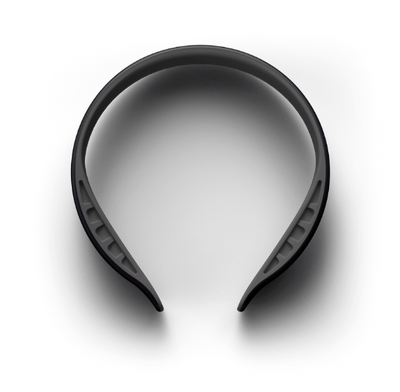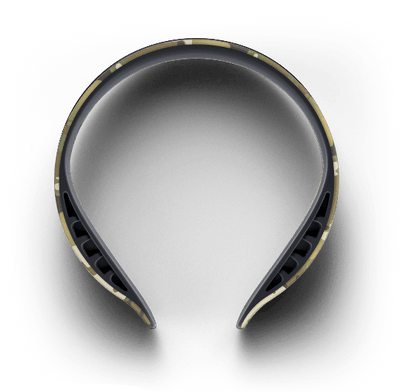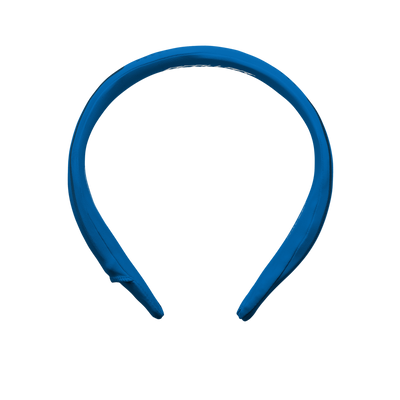Kansas City Chiefs Linebacker Drue Tranquill has been a supporter of the Q-Collar since he was in college. In 2017, while a mechanical engineering student-athlete at Notre Dame, Tranquill had the opportunity to wear the Q-Collar as a part of a pilot study where he gave Q30 Innovations feedback on the tolerability and wearability of the product.
Five years later in 2022, while a member of the Los Angeles Chargers, Tranquill started wearing the Q-Collar again to help best protect his brain on the field. That year, Tranquill played in all 17 games and posted career-highs in tackles and sacks.
Now, into the 2023 season, his first as a member of the Kansas City Chiefs, Tranquill sat down to discuss a range of topics including why he loves the game of football, his aspirations for life after football, and why he started wearing the Q-Collar again.
Why do you love to play football?
“I got into this game, and I still play this game because it’s what I’m passionate about. It’s what I love to do. I wouldn’t rather be doing anything else. I’ve loved it since I was a kid. It’s truly changed my life. I think football is a great teacher of life. I think it’s taught me so many lessons in regards to overcoming adversity myself, or as a group or team. I think it teaches you to have relationships with people you like and people you don’t like. I think it teaches you about building good habits and routines. It’s taught me so much and I’m so thankful for that. I love the energy. I love the competitive nature and going to battle with guys who share a common goal. It gets me fired up to see my wife and kids sitting in the stands watching me play. There’s nothing like the jitters that you get on a Sunday afternoon before kickoff.”
How would you define yourself as a football player?
“Going back to my early days in peewee football, I’ve always been the guy that’s a bit overlooked. I think back to my recruiting into college where coaches weren’t quite sure whether I’d be a Safety or Linebacker. I kind of just had this constant chip on my shoulder and a relentless attitude. I overcame two ACL tears at Notre Dame, as well as a broken ankle in my professional career. So, I think people look at me as this relentless, tenacious guy that loves the game, is high-energy, and just gets after it. I’m a guy that loves to win. I think another trait that encapsulates me as a football player is maybe my leadership. My teammates voted me as a two-time captain at Notre Dame. Something football’s been for me is not just a game that I love, but it’s been this game where you can form friendships and bonds that last a lifetime. For me, football’s always been about family, whether it’s teammates, coaches, or bringing my own family into the mix. Football is all about relationships. That’s been such a big aspect of my football journey. I’ve met so many good friends. So yeah, leadership has been a huge part of my football journey.”
You’re also known as a big family guy. What kind of responsibilities come with being a dad for you?
“I would say with being a dad, football sometimes feels like my break. Being a dad is something that I’ve been adapting to and learning to do over the last four years. It’s challenged me in a lot of different ways. It’s challenged my patience. It’s challenged my selflessness. It’s tested my ability to go off of my schedule and audible what I’m doing if the kids need to go a different path. It’s been the biggest blessing outside of being married to my wife. To just see yourself in your children, and to see their authentic joy and love of life is something that’s just really special. You can’t create that in anything else. It’s a special thing to be a dad.”
Knowing the dangerous nature of football, what’s your commitment like to stay healthy, not only for your team, but long-term for your family?
“You know, I think obviously I love this game of football. I love what it’s been able to do for me and my family. As a competitor, it’s the ultimate team sport. However, when I think about my life as a whole, the thing I’m most committed to is my family. I think about myself twenty or thirty years down the line as a grandfather, or hopefully a great-grandfather. I want to be healthy enough to be able to run around and be active. I’m not naive to the fact that as football players, we take a beating year-in and year-out. My health has to be at the forefront of my career, whether that’s treatment off the field, or that’s wearing the best equipment possible to protect myself from my head down. For me, health is a premium in this sport.”
How does your family inspire you to be the best you can be and what role does the Q-Collar play in that?
“I think everything for me when we talk about motivation starts with my love for my family, my love for my wife, and my love for my kids. This game is going to end for me one day, but my duty as a husband and my job as a father, that’s not going away until the day I die. When I talk about my ability to be there as a husband and as a father, I have to think beyond my football career. I have to think about myself twenty, thirty, forty years down the line. I have to ask myself if the decisions that I’m making today align with where I want to be forty years down the road. I can say as a player, taking steps like wearing the Q-Collar to put myself in the best position to be successful in regards to my health and safety allow me to answer ‘yes’ to that question.”
Where does the Q-Collar fit into that equation in terms of looking out for your long-term health?
“When we talk about health and football, one of the foremost conversations is about the head and the repetitive head impacts that occur throughout a training camp, throughout a season, or throughout a career. I’m not naive out the research that’s out there that says how many times we get hit in the head. I think when you look at the technology that’s out there, we’ve been focusing for the past decade on what can we put around a player’s head to help decrease the transmission of the trauma that’s happening to a player’s head. What I think is really cool and innovative about the Q-Collar, is that they thought about what the human body can do for itself. I that this was a really cool approach with good data to support it, and I believe it’s at the top of the class when it comes to protecting players’ heads and their bodies."
What in your background makes you more inclined to be interested in how things work?
“Since I studied Mechanical Engineering at the University of Notre Dame, my mind is always thinking about the x’s and o’s, how things work, and what I can do to best protect myself. It started off by wearing the VICIS helmet, and kind of evolved. It made me explore what other technology is out there to best protect myself. I actually came across the Q-Collar while I was at Notre Dame when we had the chance to pilot it in 2017. During that pilot study, we were giving Q30 feedback on how the product made us feel, how it affected our performance, and how it fit on our necks. I was super intrigued by the technology. It actually crisscrossed with a lot of the things that I was studying in class. It’s come a long way since. I started wearing it that year in 2017 at Notre Dame, and I’ve kind of been a part of it ever since.”
How does the Q-Collar fit into your routine with your other equipment?
“The Q-Collar has just become another piece of my uniform. I work out in it. I wear it when we’re not wearing pads on the field. I wear it when we’re just wearing helmets. I wear it when we’re in full pads. I wear it on game days. For me, it’s just become something that I put on with my shorts and my t-shirt, and it’s just become another part of my uniform. I think it’s a little bit ‘swaggy’ too. It adds a little bit of spice.”
What are the things that you have to do to allow your body to be able to perform at its best, and where does the Q-Collar fit into that equation?
“As a pro athlete, you’re constantly looking for that competitive advantage. As you continue to advance to the higher levels of your career, the margin between having success, and not, just continues to shrink. When you look at my routine as a whole, it’s what can I do physically, mentally and spiritually to get myself in alignment to be the best that I can be on any given gameday. Obviously, that starts with my physical training, whether that’s taking care of my body, training right, eating right, or sleeping right. I love this quote that I’ve heard from multiple coaches over the years that ‘In the NFL, the game is about 20% physical, and it’s about 80% mental.’ If I’m not doing what I can from the neck up to prepare myself for a season, then I’m failing myself. If I’m just doing physical training, then I’m ultimately going to fall short because that’s simply the barrier to entry. You have to be able to perform physically to be in this league, but what separates guys is their ability to perform mentally. I think what the Q-Collar does is that it helps me know that I’m protecting myself to the best of my ability from any type of damage that can happen from the neck up. It just helps me be the best that I can be in that 80%.”
Do you notice the effects of the Q-Collar during or after a game? Do you feel different than you did before?
“When I look at this past offseason compared to the offseason before, with this offseason being the first one where I wore the Q-Collar throughout the season, I just felt more clarity. I felt more mental stability. I felt less fogginess. There’s kind of this fogginess that comes from too many hits to the head. Your body is going through multiple car crashes per game. There’s this aura that you have to shake week-in and week-out in the NFL, and I can say last year with the Q-Collar that there was not nearly as much of that as the season before. I felt clearer. I felt sharper. I felt better prepared. I felt more on the spot in the classroom when we were studying. That was really a confidence booster for me moving forward in my career knowing that I’m putting myself in the best position to be successful.”
What do you tell other athletes when you ask them about the Q-Collar?
“No pun intended, I think my message to athletes about wearing the Q-Collar is that it’s a ‘no-brainer.’ If you look at the research, it’s incredible what this company and the people who have built this device have done for player health and safety moving forward. For so long, it’s been kind of archaic in how we look at things in the sense that we’ve looked for so long simply at what can we put on a player’s head to minimize the energy transmission through the brain. The Q-Collar has totally revolutionized player health and safety especially in how we look at protection of the head. I think it’s an easy choice for players. I just think players just have to get over the hump of worrying about if it’s going to affect their performance, or if it’s going to feel weird on their necks. The answer is no to both of those. It’s the best option to protect your head and neck, which is the most important thing when it comes to player health and safety in this sport.”
What do you say to parents who are worried about their kids playing football?
“There’s this narrative going around that parents should prolong their kids’ entry into tackle football. Parents are worried because there’s been a big conversation in the NFL the past five years surrounding concussions. We saw it last year where there were these big cases, but there’s so many other cases at all levels of boys and girls’ heads being impacted as a result of the nature of their sports. I just say to parents that they should make sure they’re putting their kids in the best equipment whether that’s helmet technology, or whether the Q-Collar. By doing that, you can rest assured that your kid is in the best position to have success in regard to their health and safety.”








